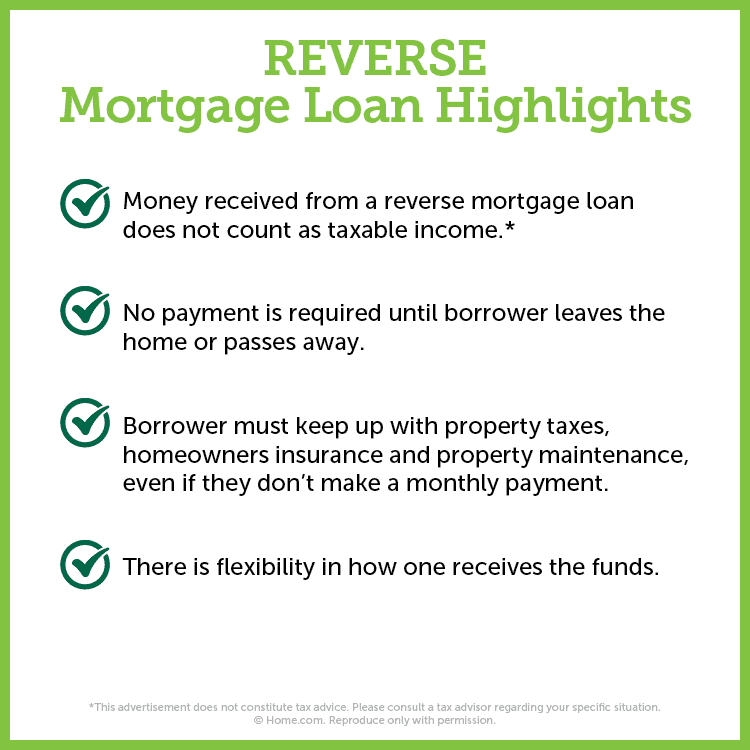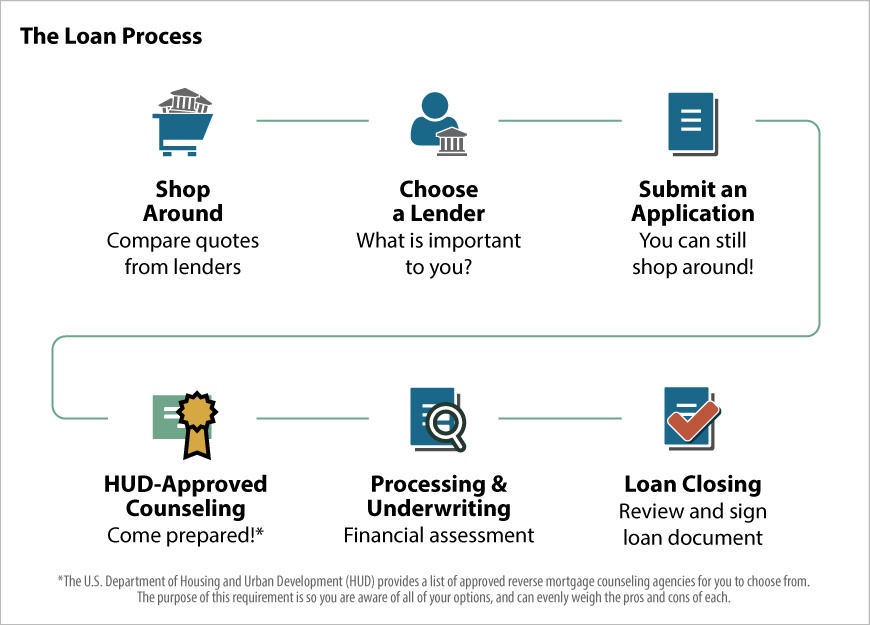Unlock Financial Flexibility: Your Overview to Acquiring a Reverse Home Mortgage
Comprehending the complexities of reverse home loans is essential for house owners aged 62 and older looking for economic freedom. This one-of-a-kind monetary tool enables senior citizens to utilize their home equity, transforming it into easily accessible money for different needs, from medical care to lifestyle improvements. However, navigating the eligibility standards, expenses, and benefits can be intricate. As you consider this option, it is crucial to understand not just exactly how it functions however additionally the ramifications it may have on your financial future. What are the key factors you should weigh prior to making such an impactful choice?
What Is a Reverse Mortgage?

The fundamental charm of a reverse mortgage exists in its possible to improve economic flexibility during retired life. Homeowners can use the funds for numerous functions, consisting of medical expenses, home renovations, or daily living prices, hence giving a safety and security internet throughout a critical point of life.
It is essential to understand that while a reverse home loan permits raised capital, it also lowers the equity in the home in time. As passion accumulates on the outstanding lending balance, it is vital for prospective debtors to thoroughly consider their long-term economic plans. Consulting with a monetary advisor or a reverse home loan specialist can offer valuable insights into whether this option aligns with an individual's monetary goals and situations.
Eligibility Needs
Recognizing the eligibility requirements for a reverse home loan is vital for home owners considering this financial choice. To qualify, applicants need to go to the very least 62 years of ages, as this age standard enables elders to access home equity without regular monthly home mortgage settlements. Furthermore, the property owner must occupy the house as their main residence, which can consist of single-family homes, particular condos, and made homes satisfying details standards.
Equity in the home is an additional crucial demand; homeowners normally need to have a substantial amount of equity, which can be determined through an assessment. The amount of equity readily available will straight influence the reverse mortgage amount. Moreover, applicants must show the capability to preserve the home, consisting of covering residential property taxes, home owners insurance coverage, and upkeep expenses, guaranteeing the home stays in good problem.
In addition, potential debtors should undertake a monetary analysis to examine their revenue, credit report, and general financial situation. This analysis helps lenders identify the applicant's capability to satisfy ongoing responsibilities connected to the property. Meeting these needs is crucial for safeguarding a reverse home loan and ensuring a smooth economic change.
Advantages of Reverse Home Mortgages
Countless advantages make reverse mortgages an attractive choice for seniors aiming to improve their monetary adaptability. purchase reverse mortgage. Among the primary benefits is the capacity to transform home equity into cash without the requirement for month-to-month home mortgage repayments. This feature permits check my blog seniors to accessibility funds for different needs, such as medical expenses, home renovations, or daily living costs, check my source therefore reducing financial stress and anxiety
Furthermore, reverse home mortgages supply a security web; elders can remain to live in their homes for as long as they meet the finance demands, cultivating stability throughout retirement. The proceeds from a reverse home loan can additionally be used to postpone Social Security benefits, potentially leading to higher payouts later.
Furthermore, reverse home loans are non-recourse finances, meaning that borrowers will never owe even more than the home's value at the time of sale, securing them and their beneficiaries from financial liability. The funds received from a reverse home mortgage are usually tax-free, including an additional layer of economic alleviation. In general, these advantages setting reverse mortgages as a functional option for seniors seeking to boost their economic scenario while preserving their valued home environment.

Costs and expenses Included
When thinking about a reverse mortgage, it's vital to recognize the different expenses and charges that can impact the overall financial photo. Understanding these costs is critical for making an informed decision regarding whether this financial product is appropriate for you.
Among the key expenses connected with a reverse mortgage is the source cost, which can vary by lender however usually varies from 0.5% to 2% of the home's assessed worth. In addition, homeowners need to prepare for closing prices, which why not try these out may consist of title insurance policy, evaluation charges, and credit history record costs, normally totaling up to numerous thousand bucks.
Another significant expense is mortgage insurance policy premiums (MIP), which secure the loan provider versus losses. This fee is typically 2% of the home's value at closing, with a recurring annual premium of 0.5% of the remaining car loan equilibrium.
Lastly, it's essential to consider ongoing costs, such as residential or commercial property tax obligations, house owner's insurance policy, and maintenance, as the customer continues to be in charge of these expenses. By carefully assessing these costs and costs, home owners can much better analyze the monetary implications of seeking a reverse home mortgage.
Steps to Begin
Obtaining begun with a reverse mortgage entails several vital steps that can aid improve the procedure and ensure you make notified choices. Examine your financial circumstance and determine if a reverse mortgage aligns with your long-lasting objectives. This includes examining your home equity, current financial obligations, and the requirement for extra earnings.
Following, research study numerous loan providers and their offerings. Seek reputable institutions with favorable reviews, clear fee structures, and competitive rate of interest. It's vital to compare problems and terms to discover the very best suitable for your requirements.
After picking a lending institution, you'll require to finish a thorough application process, which normally calls for paperwork of income, assets, and residential or commercial property details. Take part in a counseling session with a HUD-approved counselor, who will certainly give insights into the ramifications and duties of a reverse mortgage.
Final Thought
Finally, reverse mortgages present a sensible option for seniors seeking to improve their monetary stability during retirement. By transforming home equity into obtainable funds, property owners aged 62 and older can attend to different monetary needs without the stress of monthly settlements. Recognizing the intricacies of eligibility, benefits, and linked expenses is essential for making informed decisions. Cautious factor to consider and planning can cause enhanced top quality of life, guaranteeing that retired life years are both protected and meeting.
Understanding the complexities of reverse home mortgages is important for home owners aged 62 and older looking for monetary liberty.A reverse mortgage is an economic product developed largely for property owners aged 62 and older, allowing them to convert a portion of their home equity into cash - purchase reverse mortgage. Consulting with a reverse home loan or a financial expert expert can give useful understandings right into whether this choice lines up with an individual's monetary objectives and situations
Furthermore, reverse home loans are non-recourse car loans, meaning that debtors will certainly never ever owe more than the home's worth at the time of sale, protecting them and their beneficiaries from financial liability. In general, these benefits placement reverse home loans as a practical remedy for seniors seeking to improve their financial circumstance while maintaining their treasured home environment.